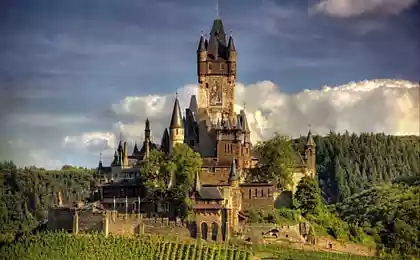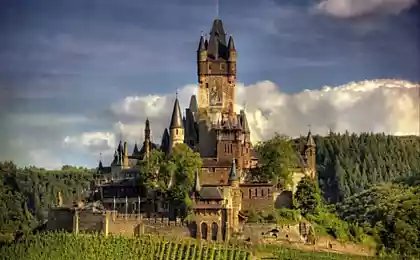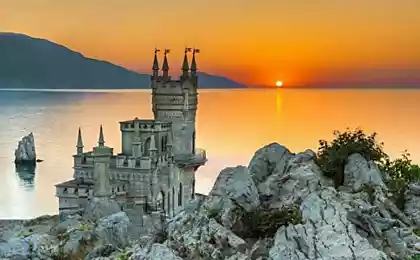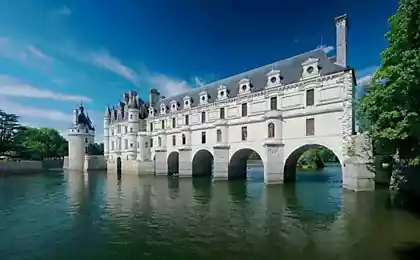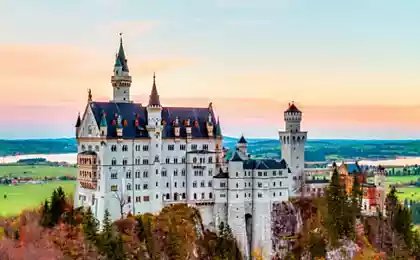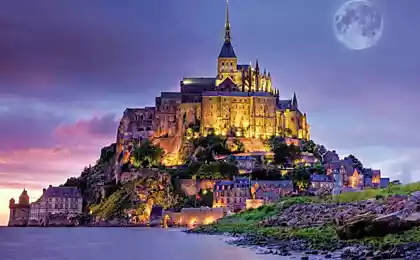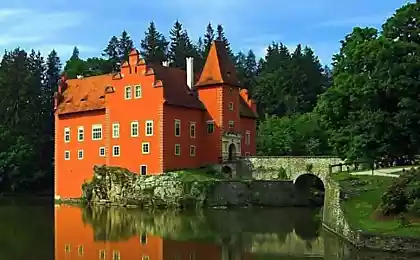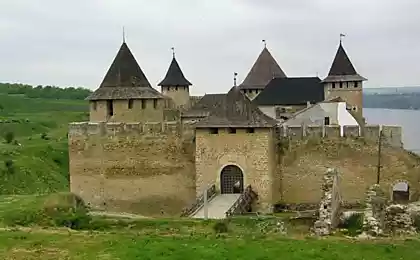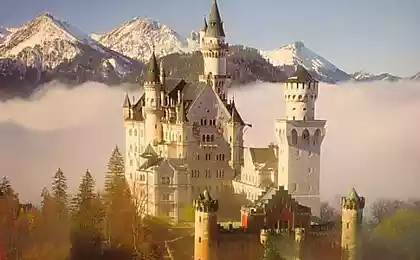1843
Neuschwanstein Castle -skazka
Neuschwanstein - a dream come fantasy, fairy tale castle, which is taken if their toy turrets and galleries over the wooded hills in the Bavarian Alps near the town of Füssen near the Austrian border. He gives the impression of theatrical scenery, and partly it is because was created under the guidance of an active Munich theater artist Christian Janka. At the same time the castle is very impressive size, and it was built for seventeen let.Lyudvig grew up in the nearby castle Hohenschwangau. This stylized medieval fortress structure built by his father Maximilian II.
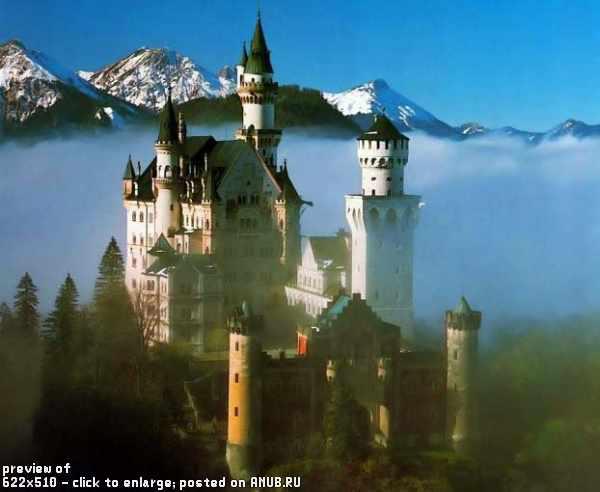
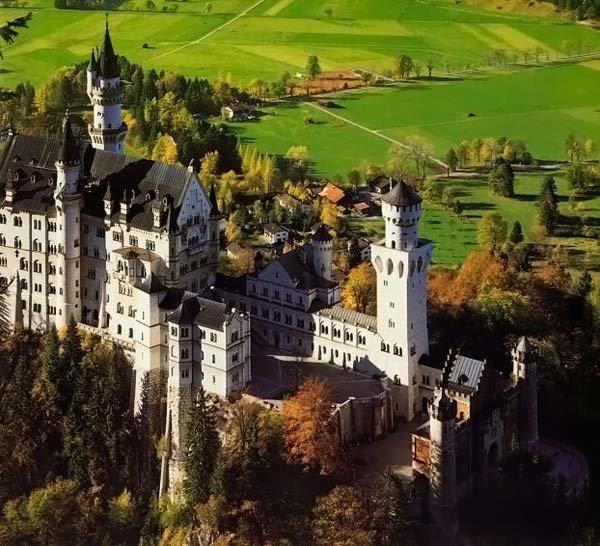
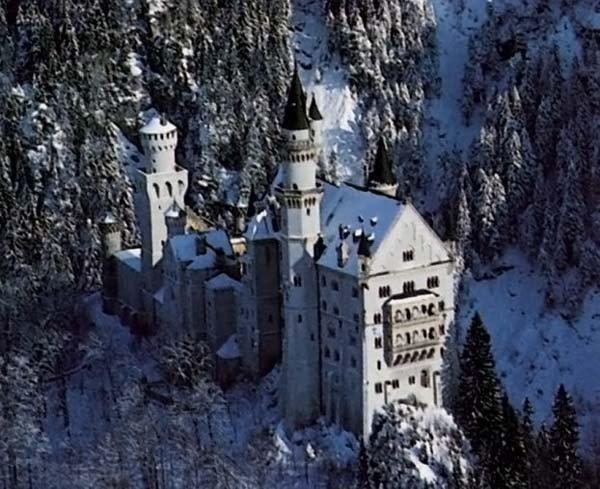
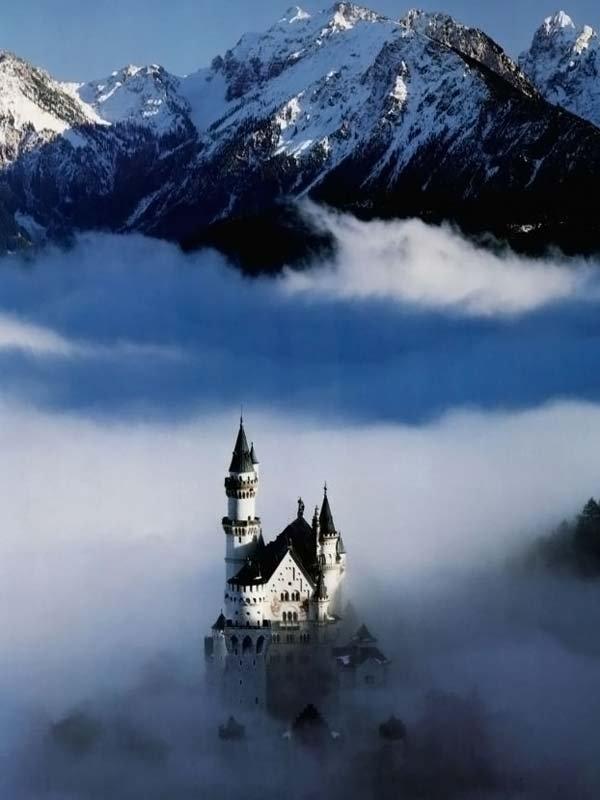
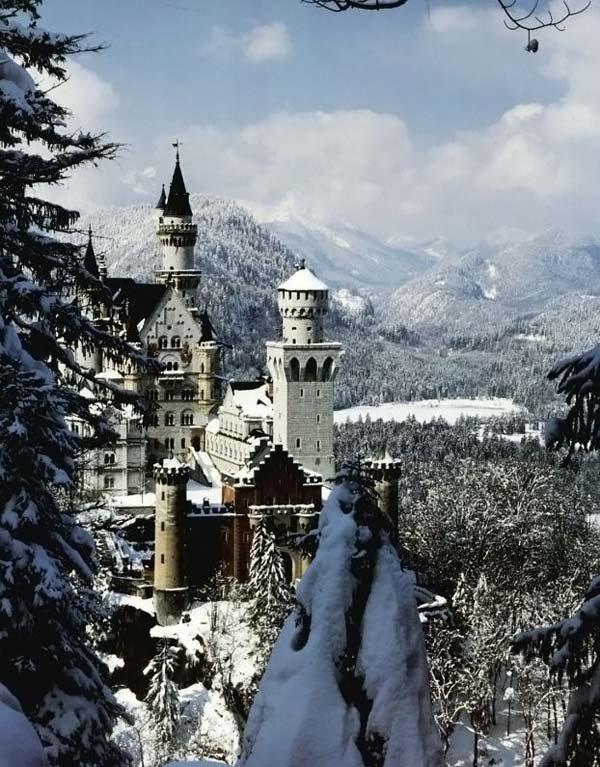
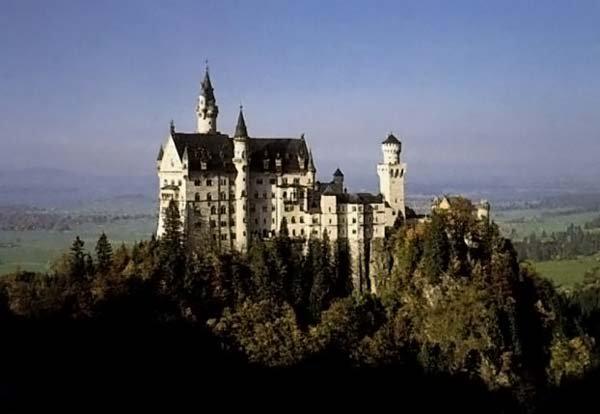
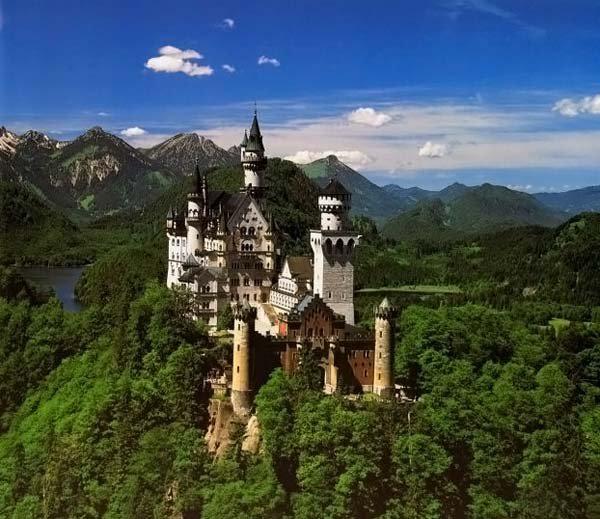
Ludwig was a passionate admirer of German mythology and, apparently, identified himself with the swan knight Lohengrin. Having been at the premiere of the opera by Richard Wagner in 1858, he was beside himself with delight. When three years later, in the age of eighteen Ludwig inherited the royal throne, one of his first public acts was to invite the composer to Munich. Now, having money and power, he became the patron of Wagner, the composer paid for all debts and promised to establish a festival for the performance of Wagner's works.
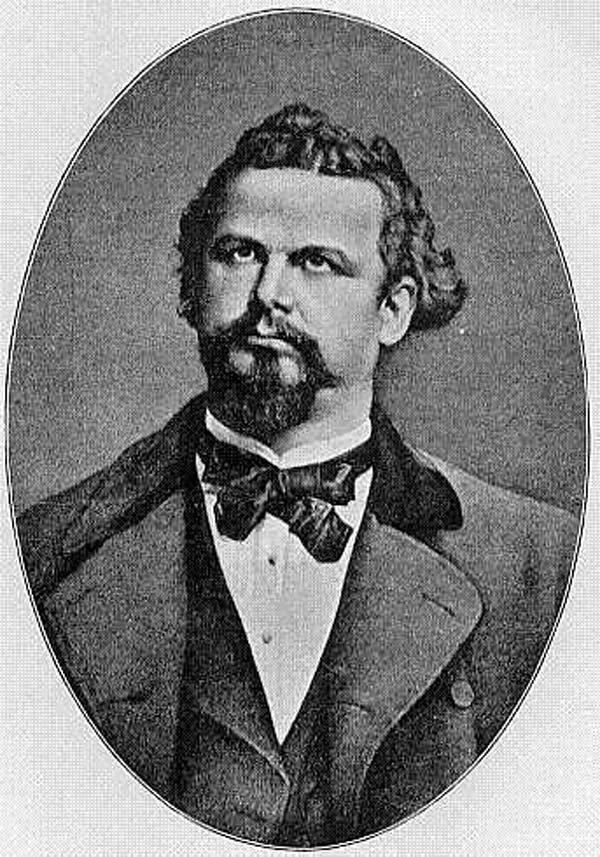
In his operas, Wagner endured a big way on the world stage of German legends and tales, trying to captivate the audience drama eternal confrontation between good and evil. Ludwig, meanwhile, ordered to begin construction of a fairytale castle, which in all respects to the ideals of the ancient German knighthood. This, as well as its other solutions, others are more inclined to believe that the king was damaged in the understanding and the ruler is not able to see things clearly. When Ludwig was still young, Bismarck publicly announced that it is quite reasonable, although even then, many conspicuous strangeness of his behavior, manner of dress bizarrely, in general the whole way of life - it is, for example, sometimes slept for days, and sometimes invited to for dinner ... the spirit of Louis XIV.
But at the end of his life madness, and it was obvious no one in doubt. Eyewitnesses and contemporaries claimed that on the production of carved wooden beds for Ludwig for four and a half years worked fifteen master carvers. The interior of the castle is a mixture of various architectural and artistic styles, a combination of Moorish, Gothic and Baroque elements: there are columns, stalactites, and the throne room in the decadent Byzantine spirit and singing room with exquisite lighting, intended for the productions of Wagner's operas.
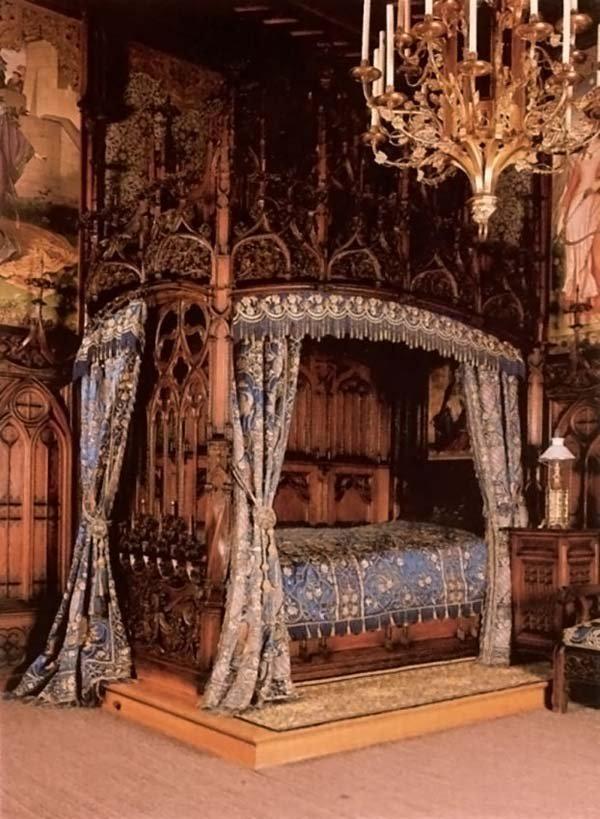
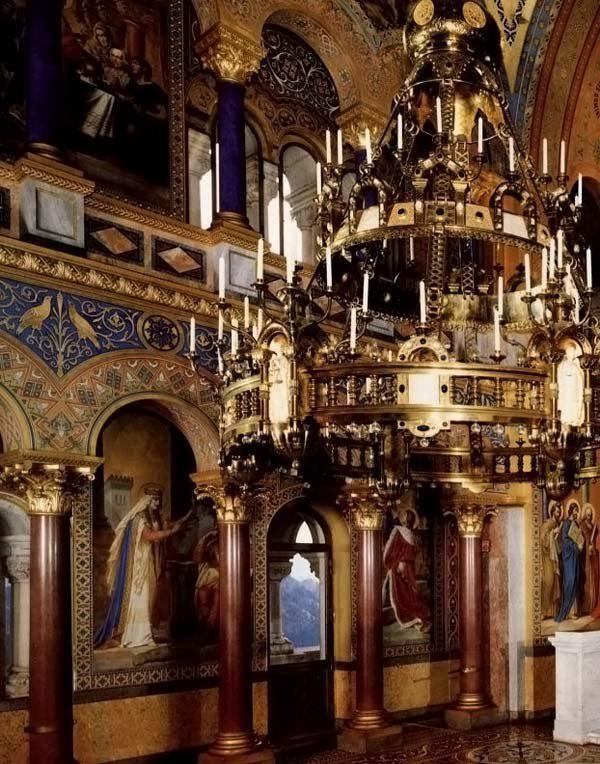
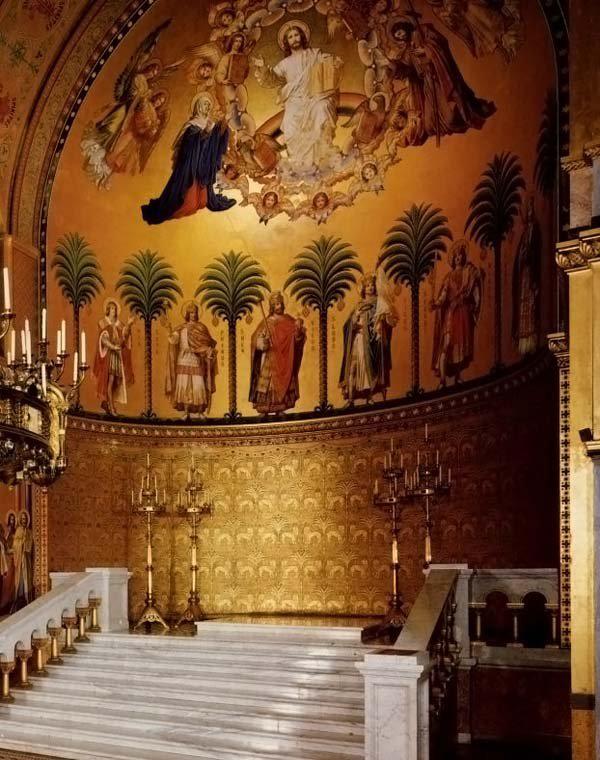
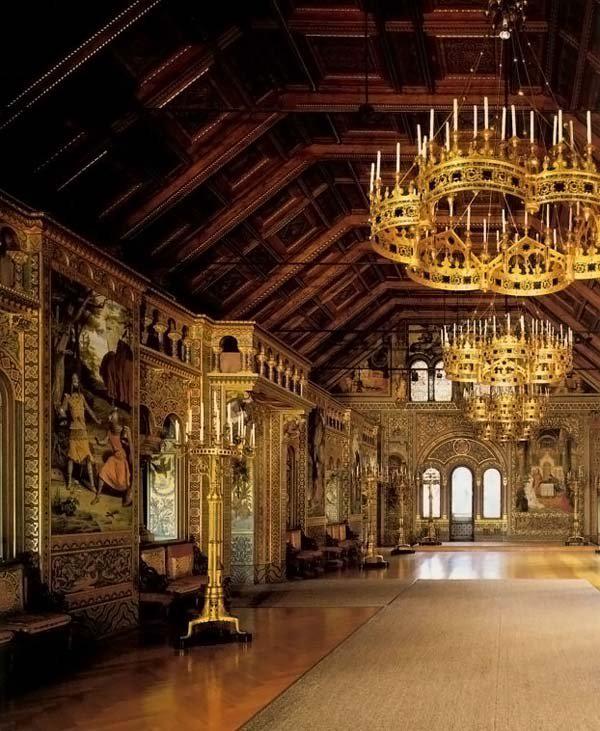
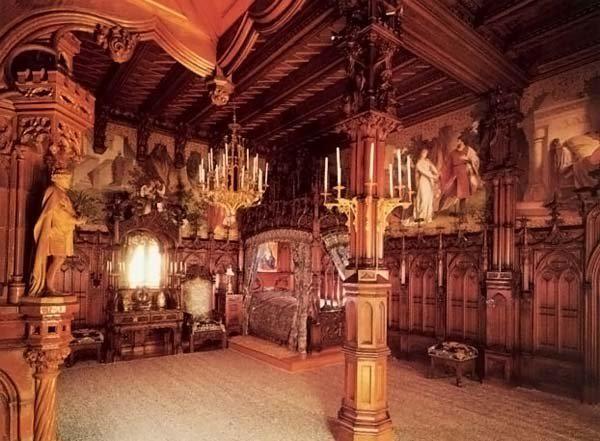
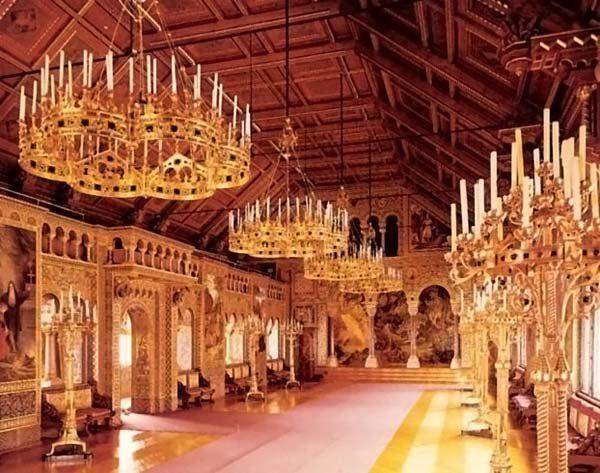
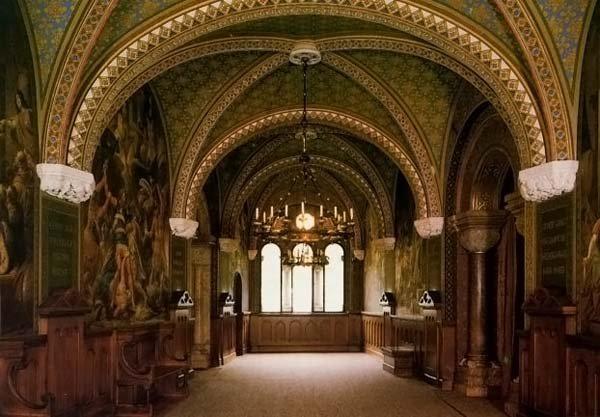
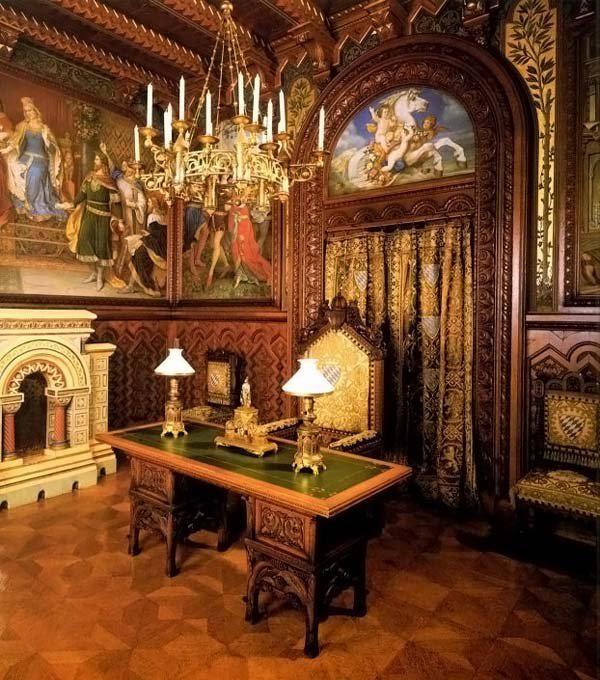







Ludwig was a passionate admirer of German mythology and, apparently, identified himself with the swan knight Lohengrin. Having been at the premiere of the opera by Richard Wagner in 1858, he was beside himself with delight. When three years later, in the age of eighteen Ludwig inherited the royal throne, one of his first public acts was to invite the composer to Munich. Now, having money and power, he became the patron of Wagner, the composer paid for all debts and promised to establish a festival for the performance of Wagner's works.

In his operas, Wagner endured a big way on the world stage of German legends and tales, trying to captivate the audience drama eternal confrontation between good and evil. Ludwig, meanwhile, ordered to begin construction of a fairytale castle, which in all respects to the ideals of the ancient German knighthood. This, as well as its other solutions, others are more inclined to believe that the king was damaged in the understanding and the ruler is not able to see things clearly. When Ludwig was still young, Bismarck publicly announced that it is quite reasonable, although even then, many conspicuous strangeness of his behavior, manner of dress bizarrely, in general the whole way of life - it is, for example, sometimes slept for days, and sometimes invited to for dinner ... the spirit of Louis XIV.
But at the end of his life madness, and it was obvious no one in doubt. Eyewitnesses and contemporaries claimed that on the production of carved wooden beds for Ludwig for four and a half years worked fifteen master carvers. The interior of the castle is a mixture of various architectural and artistic styles, a combination of Moorish, Gothic and Baroque elements: there are columns, stalactites, and the throne room in the decadent Byzantine spirit and singing room with exquisite lighting, intended for the productions of Wagner's operas.









